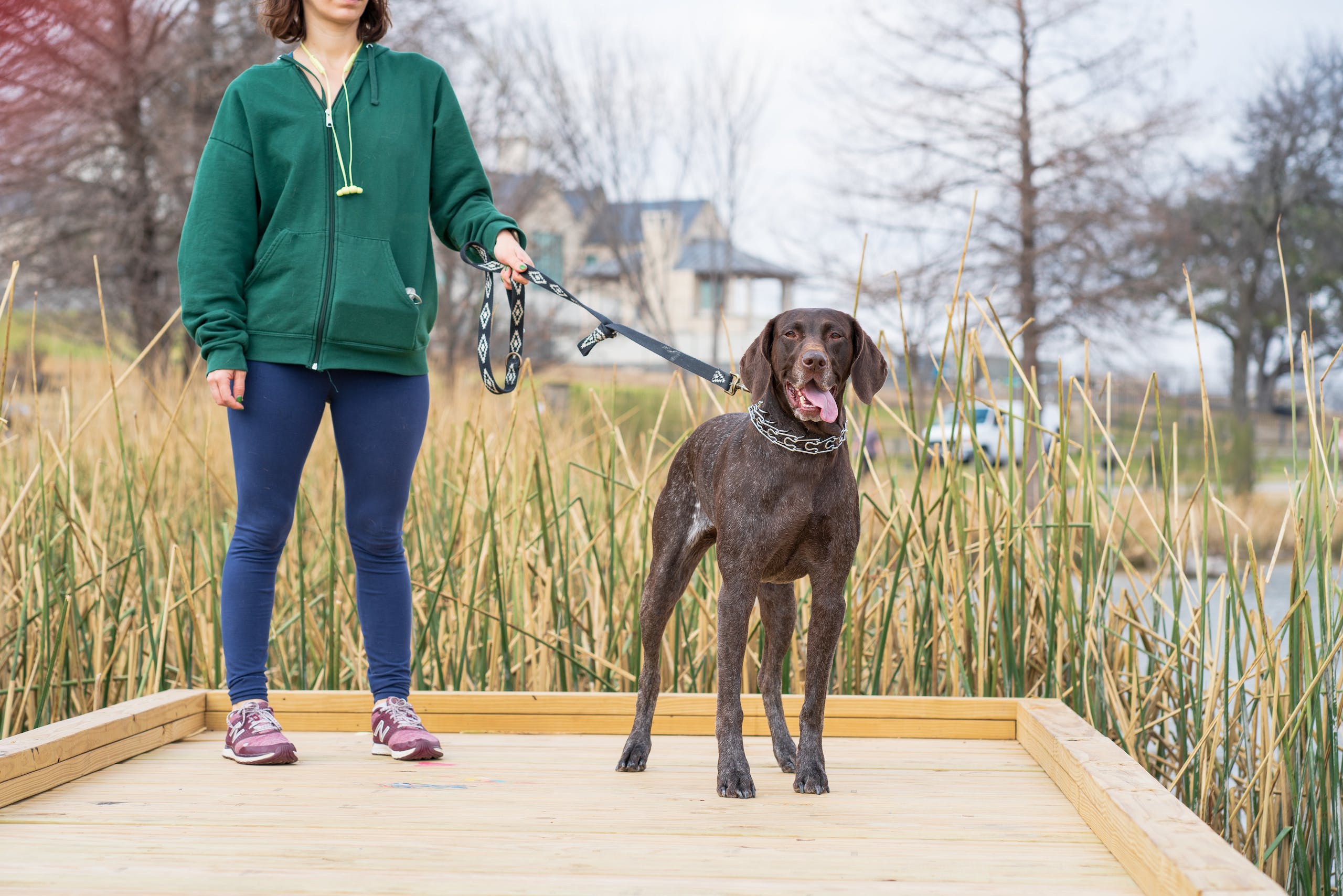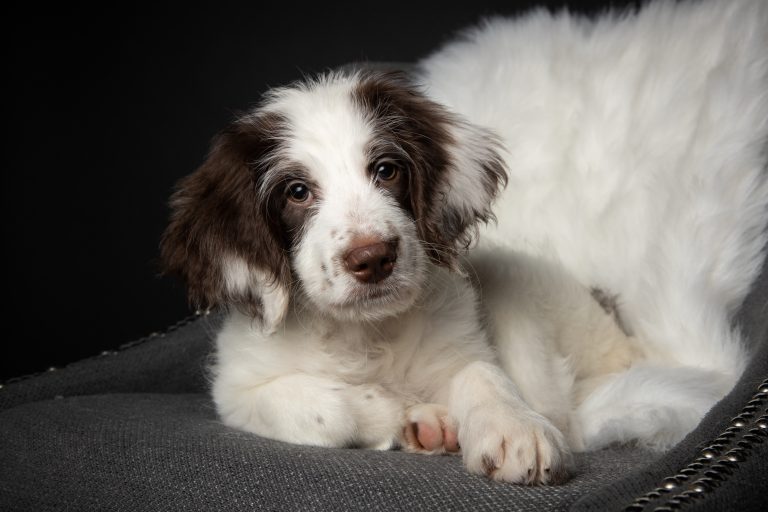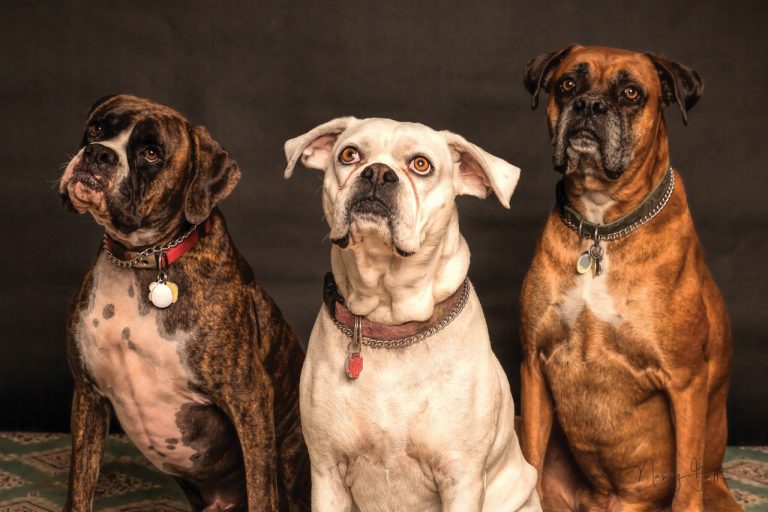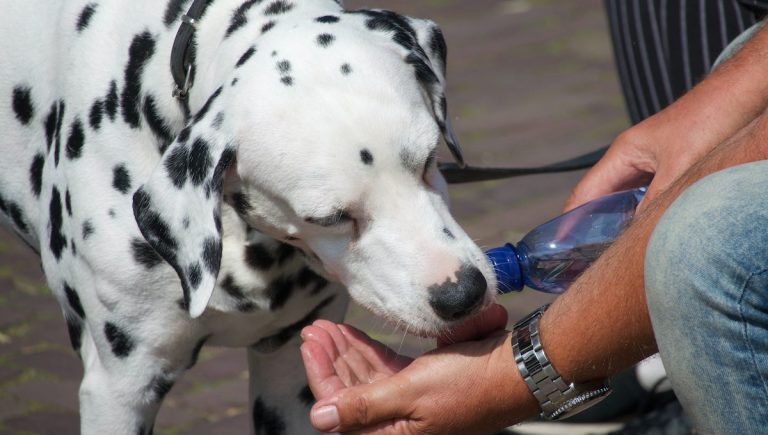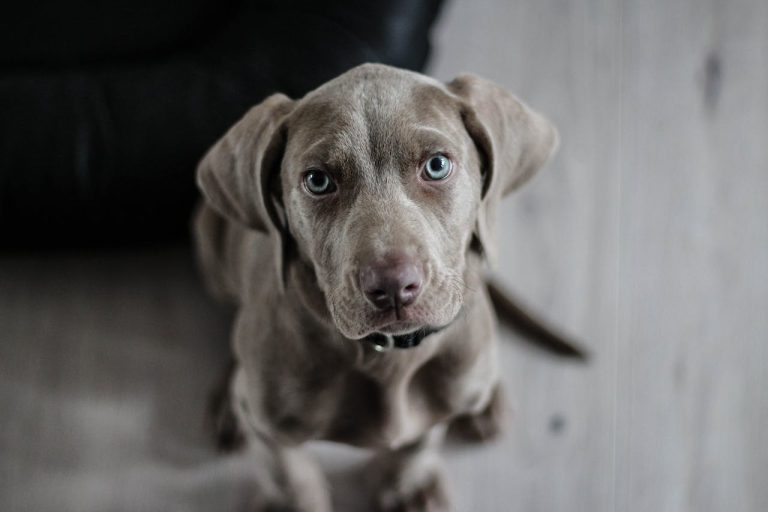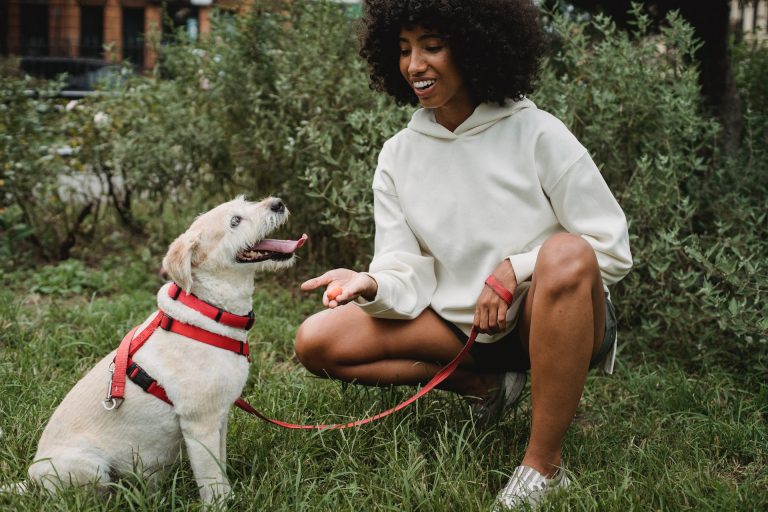Pointer Dog: Everything You Need To Know (2025)
Pointer Dog, generally a healthy breed, but there may be some issues and disorders. Click to find out more.
Owning a Pointer dog can be as challenging as it is rewarding, with their boundless energy and sharp instincts often leading the way.
These versatile bird dogs, (Pointers), recognized by the American Kennel Club for their athletic build and spirited character, thrive on activity and purpose. They are considered as gun dogs.
Our article offers practical training tips to channel your Pointer’s vigor into positive behaviors for a well-adjusted companion.
I own a German Shorthaired Pointer dog so writing this article was very exciting.
Let’s dive in…
Key Takeaways
- Pointers are energetic dogs who need a lot of daily exercise, like long runs and dog sports, to stay happy.
- Early training is important for Pointers. Teach them commands like “leave it” to control their prey drive and how to be calm around other pets and people.
- Keep your Pointer’s diet healthy with the right food amount and low treats during training to avoid weight gain.
- Take care of your Pointer’s coat with weekly brushing and regular ear checks to prevent infections.
- Include your Pointer in family activities; they thrive on companionship and do not enjoy being alone outdoors.
Latest statistics for Pointer dog breeds in the United States (2024)

The latest statistics for Pointer dog breeds in the United States (2024) show the following percentages of ownership:
- German Shorthaired Pointer: 19.5%
- German Wirehaired Pointer: 9.6%
- Pointer: 7.1%
These statistics reflect the popularity and ownership trends of these breeds, particularly among upland hunters and dog enthusiasts.
Overview of the Pointer Breed
Distinguished by their grace and agility, Pointers are the epitome of athletic canine breeds; they boast a heritage steeped in field work and showcase an unmistakable zest for life that captivates enthusiasts worldwide.
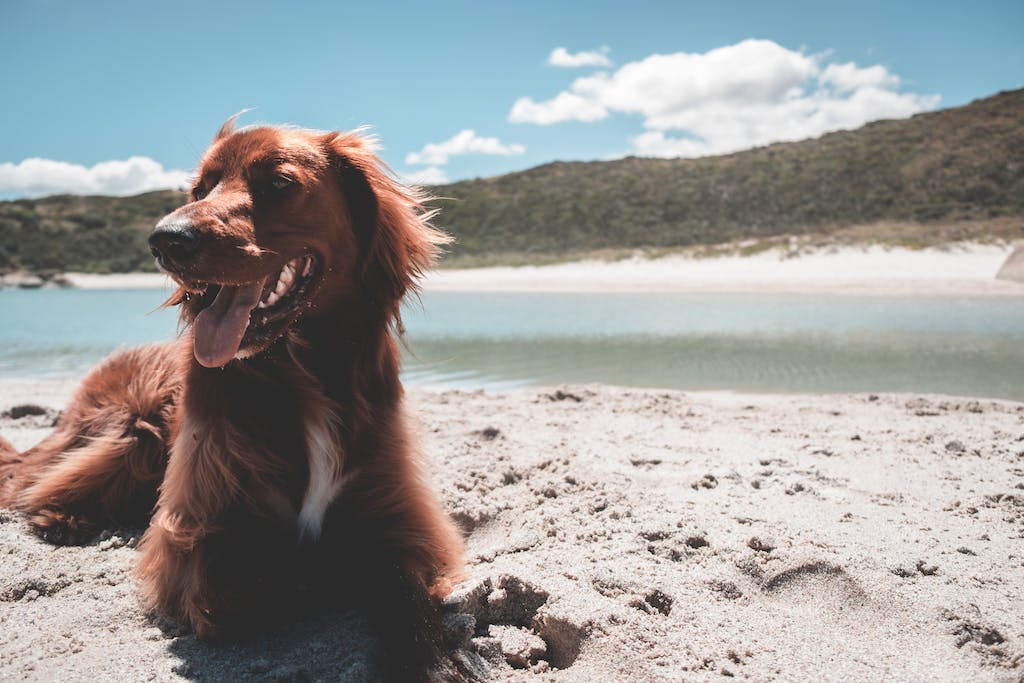
With their keen senses and amiable disposition, these medium-sized dogs carve a unique niche as both skilled hunters and beloved family companions.
Appearance
Pointers stand tall and strong, with a height between 53 to 71 centimeters. They weigh about 20 to 34 kilograms.
These dogs have a unique athletic look with their slightly dished faces and high brows.
Their ears hang by the side of their face, and they have wide nostrils that help them smell well. The coat of these dogs is short but tough—it is smooth to the touch.
Their muscular neck leads down to sloping shoulders and a broad chest, making them look ready for action.
Legs are straight and sturdy at the front, while the back legs show off powerful muscles.
Pointers’ feet are oval-shaped; they end in a medium-length tail that shows their mood or level of interest. Colors vary—some pointers are lemon or orange; others might be liver or black—and many have white patches mixed in.
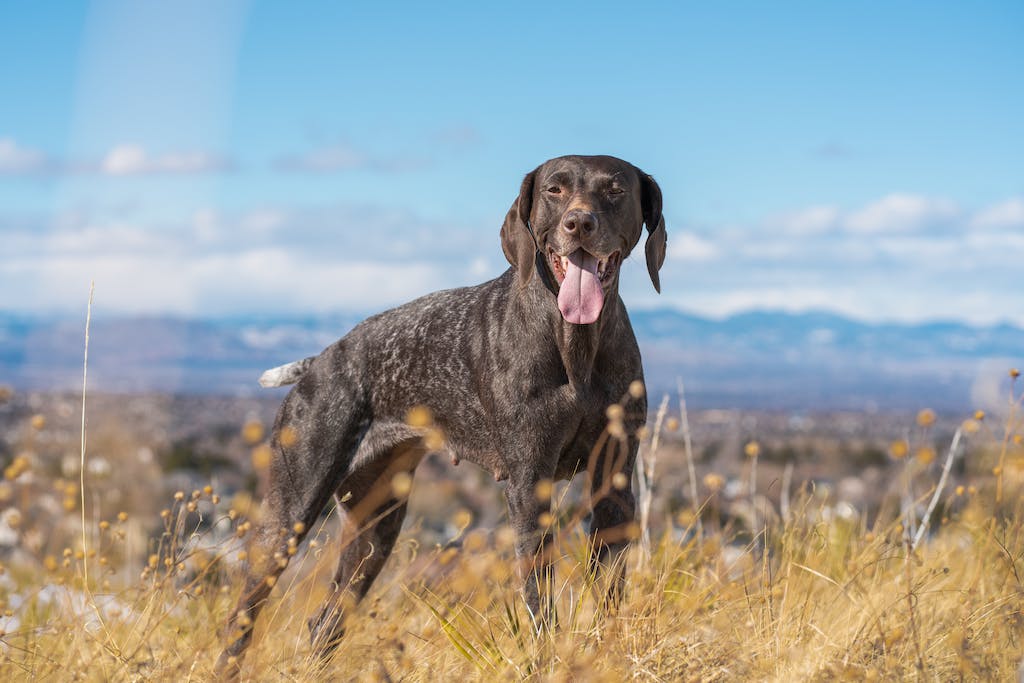
Character
Pointers are known for their loyal and hardworking nature. They love being part of the family, always ready to join in activities or relax by your side. Their gentle manner makes them a joy to have around the house.
You can trust these dogs to be affectionate with you, adapting well to different situations. This breed’s even-tempered character ensures they react calmly to new environments and people.
With their adaptability, Pointers also show patience, making them great companions for older children who understand how to interact with dogs. Always eager to please, they respond well to positive training methods.
This blend of loyalty and gentleness with an eagerness to learn makes Pointer dogs wonderful pets for those willing to meet their active lifestyle needs.
Health
Pointers might get health problems like epilepsy, hip dysplasia, elbow dysplasia, and eye disorders. Autoimmune diseases are another concern. To keep these issues at bay, it’s important to get them health checks before they have puppies.
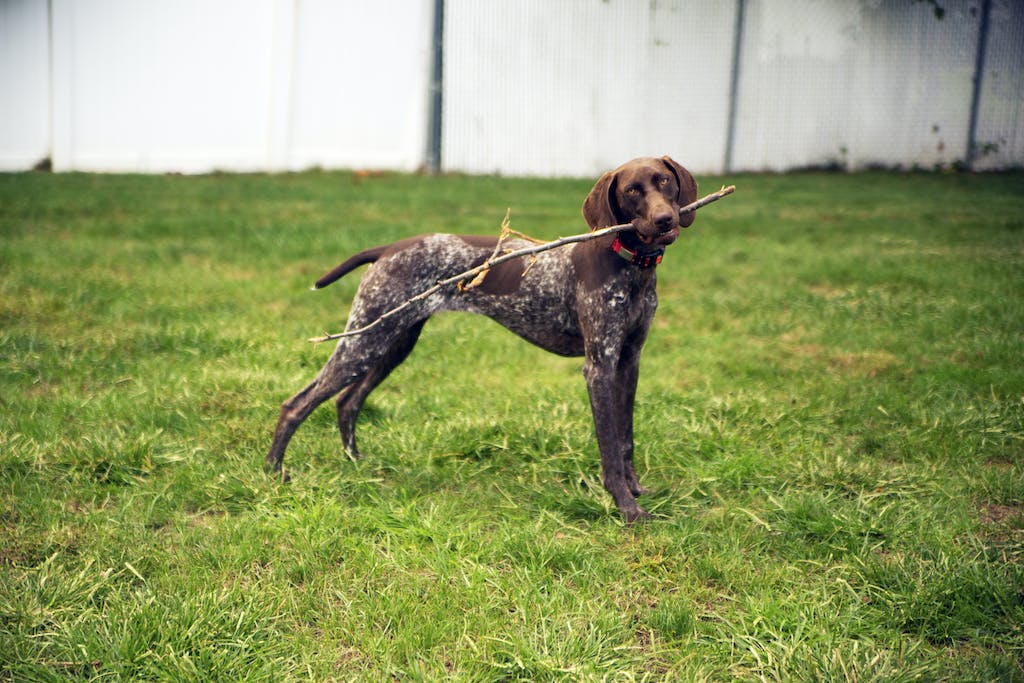
This helps stop bad genes from spreading.
These dogs need the right food for their age to be strong and healthy. Watching how much they eat is key because being overweight is not good for them. For training, treats work well but always in small amounts.
Pointers’ coats are easy to look after with just a brush every week and checking their ears often.
Keep those nails trimmed too! This breed loves running around and needs lots of exercise each day or else they won’t be happy campers. Let’s also talk about how you can train your Pointer dog next!
Essential Traits of Pointer Dogs
Understanding the essential traits of Pointer dogs is crucial for any pet parent—these spirited canines possess an inherent zest for life, marked by their boundless energy and sharp instincts.
Recognizing these characteristics not only enlightens us about their behavior but also guides us to tailor our training strategies effectively, ensuring a harmonious relationship brimming with mutual respect and joy.
Active Nature
Pointers burst with energy and love to run. They join you for runs and play hard, keeping both body and mind busy. With their whole heart, they give life a go-get-it spirit. But take care – without enough fun things to do, Pointers might find trouble.
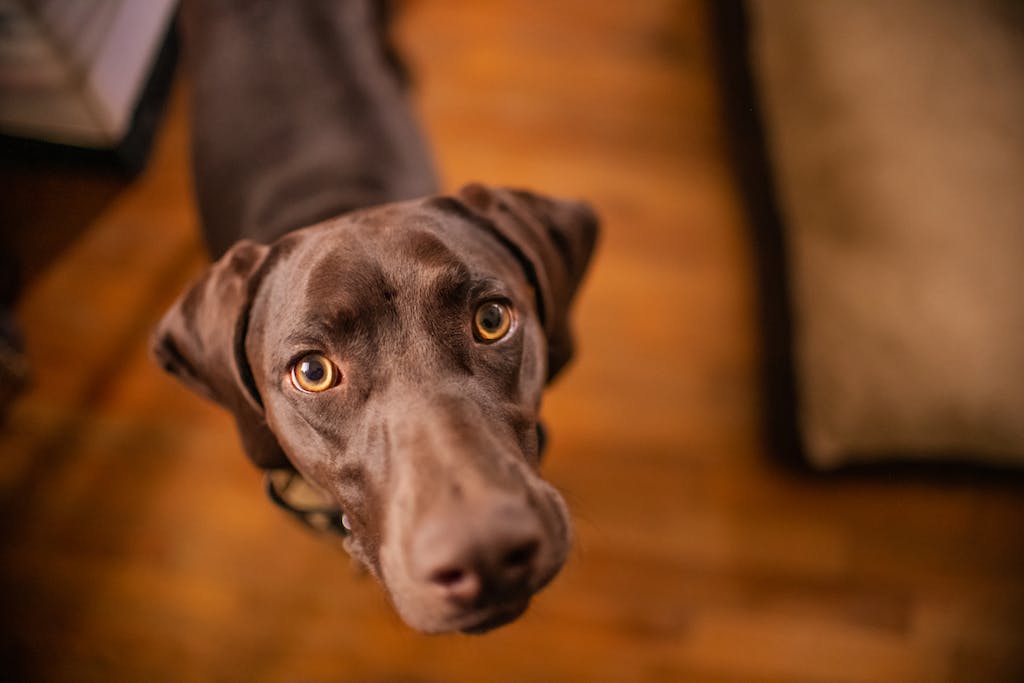
This breed is joy on legs when it’s moving and exploring. Daily exercise is not just good; it’s a must-do for their happiness. You’ll see them zoom around the yard or sprint in the park, full of glee.
Give your Pointer games to play and space to roam – happy dog means happy home!
Prey Drive
Pointer dogs have a strong want to chase. This comes from their history as hunting dogs. They love going after birds and other small animals. It’s in their nature, and that makes them great helpers when hunting.
This chasing can be a problem if not watched. Small pets like cats may get scared, and the pointer may run off if it sees something to chase. It is key to teach them good habits early on so they know not to chase everything.
Their focus while hunting is very sharp because of this prey drive. Train your pointer well, and you will help keep this instinct in check while they play or work outdoors. Next, we’ll talk about how training can shape these smart dogs into great friends who know how to act around other animals and people.
Trainability
After understanding their prey drive, it’s crucial to focus on a Pointer’s ability to learn. Pointers are loyal and even-tempered dogs which makes them very trainable. Their obedience comes naturally, so they pick up commands fast.
Teaching them new skills can be fun for both the dog and pet parents.
The best way to train a Pointer is by using their active nature to your advantage. They love moving around and staying busy, so training that involves action works well. Activities like field trials or dog sports keep them engaged while learning.
These dogs enjoy pleasing their handlers, making consistent practice an enjoyable experience for everyone involved.
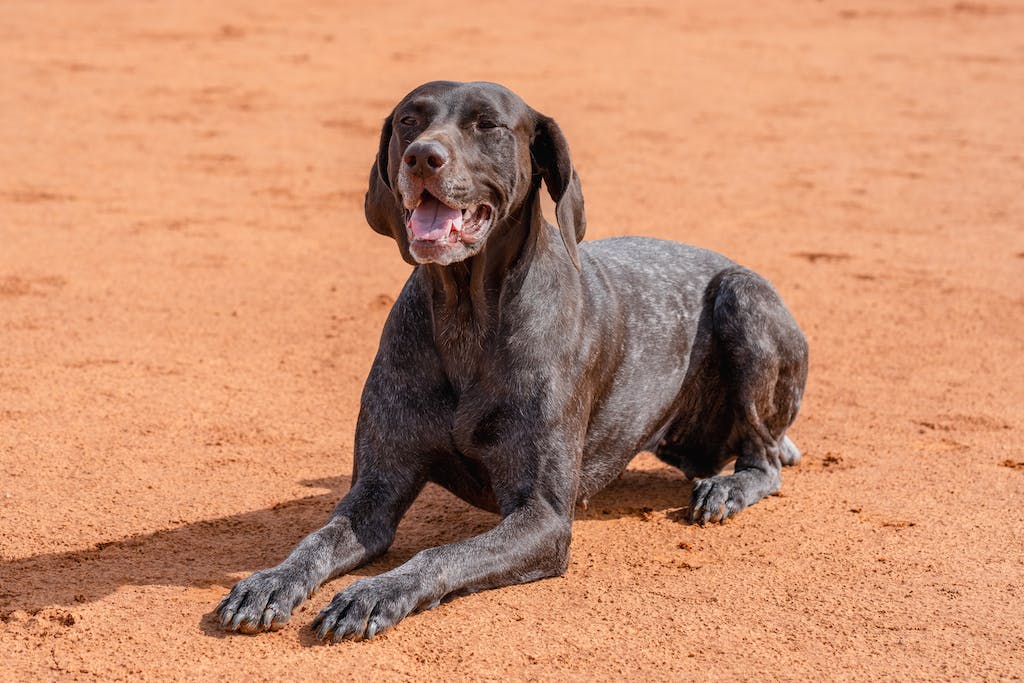
Training Tips for Pointer Dogs
Discover how to harness the intelligence and energy of your pointer dog with effective training strategies that promote a well-behaved, content companion—stay tuned for insightful techniques ahead.
Addressing High Prey Drive
Pointers are born with a strong desire to chase. This high prey drive needs careful training to manage.
- Start young: Train your Pointer puppy early on to manage their hunting instincts.
- Use games: Play fetch or hide and seek. These games can help control their chasing urges.
- Teach ‘Leave it’: This command stops them from chasing unwanted things.
- Long leash training: Helps them explore safely without running after animals.
- Socialize often: Introduce your Pointer to other pets and animals while they’re young. It helps them learn not to chase every animal they see.
- Positive reinforcement: Reward good behavior with treats or praise when they obey commands instead of chasing.
- Regular exercise: Tire them out with plenty of daily activity. Tired dogs are less likely to chase.
- Controlled environments: Practice in fenced areas where they can’t catch small animals.
- Stay consistent: Keep the same rules all the time so they know what’s expected of them.
Enhancing Dog-Friendly Behavior
Enhancing dog-friendly behavior in Pointer dogs takes patience and the right approach. Use positive ways to train them so they enjoy learning how to act around people and other pets.
- Start training your Pointer early. As young as 8 to 10 weeks old is a good time. This helps them learn how to behave with family members, including young children.
- Teach your dog to sit quietly when meeting new friends. Show them that calm greetings get treats and praise.
- Set playdates with other dogs. Make sure these are safe and controlled so your Pointer can learn proper play behavior.
- A tired dog is a well-behaved dog. Give your Pointer plenty of exercise (both physically and mentally) each day to help them stay calm.
- Reward good behavior with things they like — toys, yummy treats, or extra cuddles work well.
- Practice “leave it” commands. This teaches Pointers not to chase cats or other animals they might see while out on walks.
- Be consistent with rules and commands. Dogs do well when they know what’s expected of them at all times.
- Use short training sessions throughout the day. Pointers have lots of energy but shorter attention spans, so keep lessons brief but frequent.
- Encourage gentleness by hand-feeding occasionally. This can reduce nipping and teach delicate taking of food and treats from hands.
Managing High Energy Levels
Pointers have lots of energy that needs the right outlet. A happy Pointer is one with plenty of chances to move and play. Here are ways to help manage their zest for life:
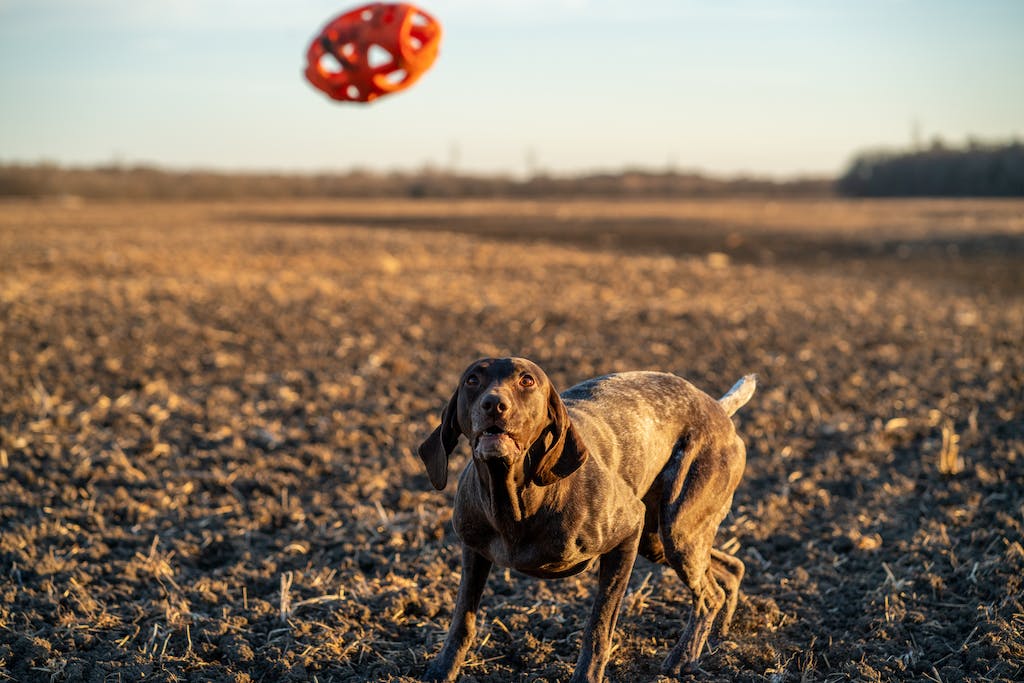
- Daily exercise is vital. Take your Pointer for long walks or runs every day. They love running in big, open spaces.
- Play games that tire them out. Fetch, tug-of-war, and hide-and-seek are great for burning off steam.
- Get into dog sports. Pointers do well in activities like agility or flyball where they can jump, run, and think.
- Set a routine. Dogs feel secure knowing what to expect each day, so keep their exercise at regular times.
- Mental stimulation is as important as physical activity. Teach them tricks or give them puzzle toys to keep their minds sharp.
- Join a training class or group. This helps Pointers use up energy while learning how to behave around other dogs.
- Limit treats and watch their diet. A healthy weight keeps them more active and avoids problems like obesity.
Health and Grooming Needs of Pointer Dogs
Maintaining the vigor of your pointer goes beyond regular vet check-ups; it’s about a holistic approach to their physical upkeep and daily care—think proactive not reactive.
From tail tip to shiny nose, we’ll dive into developing a robust routine that keeps your pointer as gleaming on the outside as they are energetic on the inside.
Regular Exercise Routines
Pointers are high-energy dogs that need lots of activity. They live long, happy lives with the right kind of exercise.
- Take your Pointer on brisk walks or runs every day. This helps them burn off energy and stay fit.
- Play fetch or Frisbee in a secure area. These games tap into their natural instincts and keep their minds sharp.
- Enroll in dog sports like agility, flyball, or dock diving. Pointers enjoy these activities and they provide great mental and physical workouts.
- Schedule regular playtimes with other dogs. Pointers are social creatures and benefit from interaction.
- Go hiking or trail running if possible. Varied terrain challenges them and satisfies their love for exploration.
- Consider training for field trials or hunting tests if it’s an interest. Pointers were bred for this work, making it a perfect outlet for their skills.
- Give them puzzle toys or hide-and-seek treats. This keeps their brains busy even when they’re indoors.
- Make sure they get exercise in different ways, not just one type. Mix up your routines to keep things exciting for your Pointer.
- Always provide water during exercise sessions. Staying hydrated is important, especially after vigorous activity.
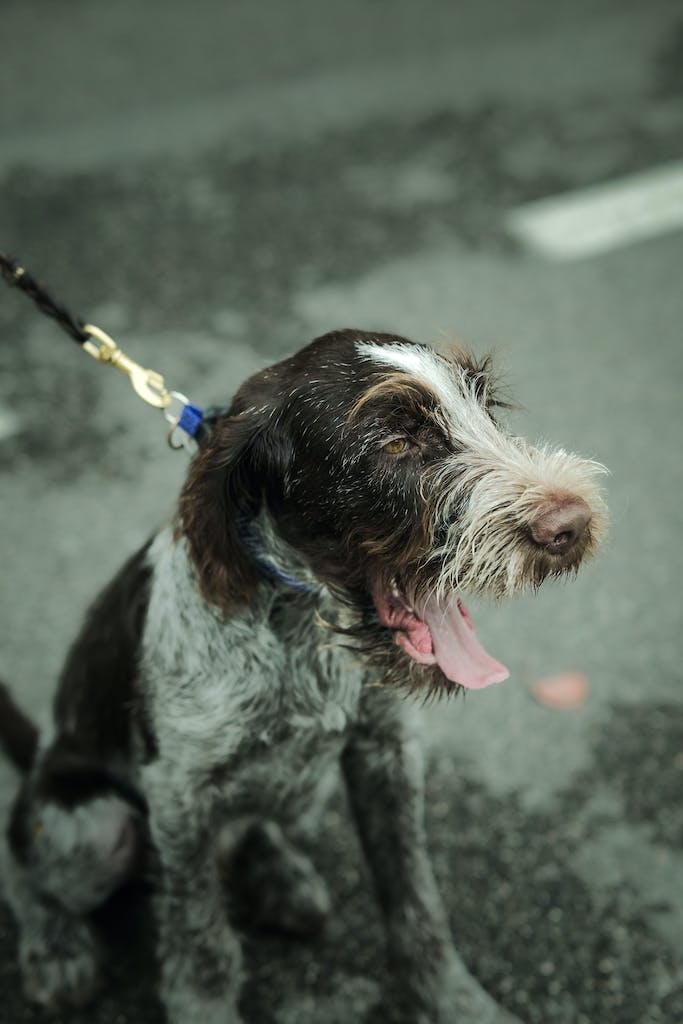
Diet and Nutrition
Pointer dogs shine with the right food in their bowls. You’ll want to give them high-quality dry dog food—about 2 to 3 cups daily split into two meals. But, here’s the thing: not every Pointer needs the same amount of chow.
A snoozing couch pooch won’t munch as much as a zippy yard zoomer.
Toss treats wisely during training times—they’re like gold for good behavior but don’t overdo it. Obesity is no joke; keep an eye on that belly bulge! Always have a chat with your vet about what’s best for your buddy because just like people, every pup has its own tastes and tummy needs.
Keep those muscles lean and mean by measuring meals and sticking to a twice-a-day feeding frenzy.
Coat Care and Grooming
Pointer dogs have short, dense coats that are easy to look after. Regular care keeps their coat shiny and healthy. Here’s what you need to do:
- Brush your dog’s coat once a week. This gets rid of dead hair and dirt, and it helps their skin oils spread through their fur.
- Use a rubber grooming mitt or a short-bristled brush. These tools work well for Pointer dogs’ coats.
- Check their ears each time you groom. Pointers can get dirt in their ears which can lead to infections.
- Cleaning the ears gently with a vet-approved solution is important. Only clean the parts you can see to stay safe.
- Clip their nails regularly to prevent discomfort and problems walking. If you hear clicking on the floor, it’s time to trim.
- Bathe your dog only when needed. Over-bathing can strip natural oils from their skin and make them dry.
- During brushing, look for any bumps or cuts on the skin. Finding issues early can keep your dog healthy.
- Don’t forget dental care; along with grooming, brush your dog’s teeth several times a week to prevent bad breath and gum disease.
Co-existing with Pointer Dogs
Living with a Pointer is an adventure characterized by boundless energy and affection; understanding their unique traits ensures harmony at home. It’s about crafting the right mix of stimulation, patience, and care to meet the spirited demands of these dynamic companions.
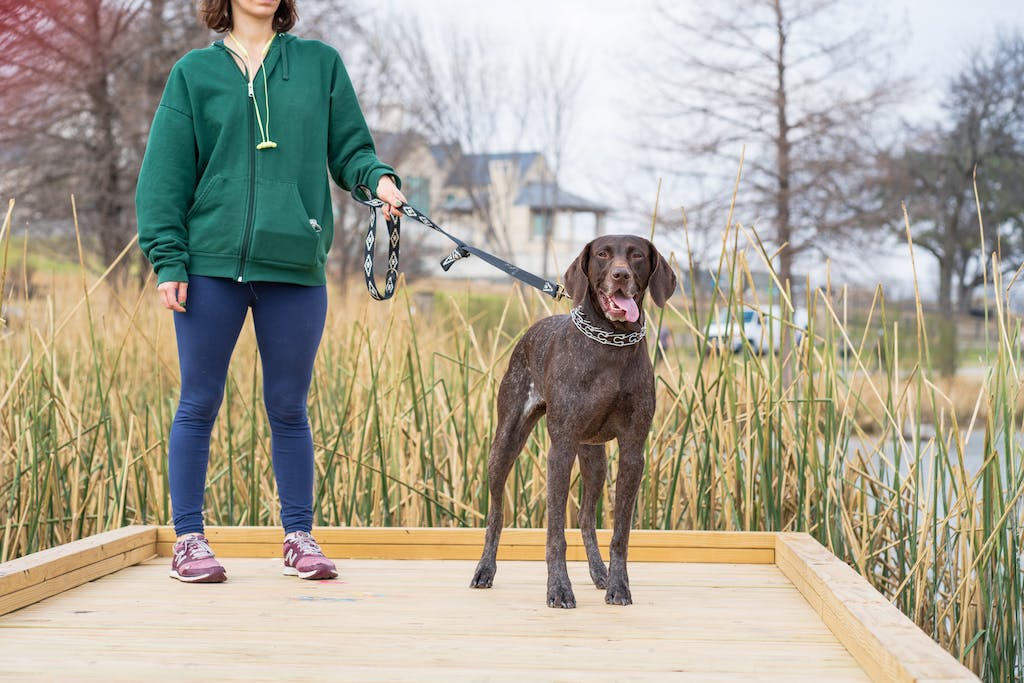
Compatibility with Children and Other Pets
Pointers can be great pals for kids and fit in with other pets if you start training and hanging out with others early. They’re kind of like the kid-friendly, pet-welcoming type when they know it’s cool with their family.
But, stay close when they’re around little ones to keep everyone safe. These dogs can become part of the gang, making new friends with folks and animals your family likes.
You might see them getting along super well with a cat or chilling beside a hamster cage without any fuss. Their friendly vibe extends to visitors too—not just puppies or kittens but people as well.
Just teach them nice manners from puppyhood, so they learn how to play safely and respect their furry housemates or any guests that come by.
Ideal Living Conditions
Pointers need a lot of room to run and play. They do best in homes with big yards or near places where they can be active outdoors. These dogs love running, exploring, and being part of all sorts of adventures.
Living in the city, especially in an apartment, is not good for them. Their bodies and minds are happiest when they have space to move and things to do outside.
For these active pups, a house out in the suburbs or countryside is perfect. Here they can live their best life – chasing birds, sniffing around, and getting all the exercise their energetic selves need.
They’re not meant to be cooped up inside; nature is where they belong!
Understanding and Meeting Their Needs
Meeting a Pointer’s needs starts with lots of exercise. They thrive on activity and require at least two hours daily to stay happy. This breed does well with space, like in suburban or rural homes where they can run and explore.
Good food is also key for Pointers. Feed them high-quality dog food but keep treats to a minimum. Include them in family activities—they’re not suited for living outdoors alone. Making sure their physical and social needs are met will help your Pointer lead a joyful life.
Conclusion
Your Pointer dog will thrive with the right care and training. Keep them busy and their minds sharp. Remember, a healthy diet and good coat care go a long way. Love them, understand them, and watch as they become your loyal friend.
Happy training to you both!
FAQs
1. What’s the best way to train a Pointer dog?
To train a Pointer dog, make sure you give them lots of exercise and use positive methods like treats and praise. Stick to clear commands and be consistent, so your active breed learns what you want.
2. Can Pointers live in apartments?
Pointers can live in apartments if they get enough exercise outside. Remember – these dogs love to run! So daily long walks or runs are key for their happiness; otherwise, they may start barking or being destructive at home.
3. How often should I brush my Pointer’s coat?
Weekly brushing works well for Pointers! This keeps their short hair neat and clean, plus it helps find any new bumps or cuts that might need care.
4. What health checks do Pointers need?
Pointer dogs should go to the vet for regular health screenings. Look out for conditions common in pointers like hip dysplasia or eye problems such as cataracts—catching things early helps keep your dog healthy.
5. Is there anything special about feeding my Pointer?
Yep! Feed your Pointer based on its size, age, and how much it exercises – but don’t overdo it with dog treats or food; maintaining the right weight is crucial for their physical health.
6. Do all Pointers point when they see birds?
Most do! It’s natural behavior for pointing breeds like English Setters or German Shorthaired Pointers because they were bred as bird dogs to help hunters find game – cool, huh? Just check with a responsible breeder about each puppy’s individual needs
7. What are examples of Pointer dog
Pointer dog breed examples include English Pointer, English Setter, Spanish Pointers, Spinone Italiano, Wirehaired Pointing Griffon, German Wirehaired Pointer, Bracco Italiano, Gordon Setter and Irish Setter
